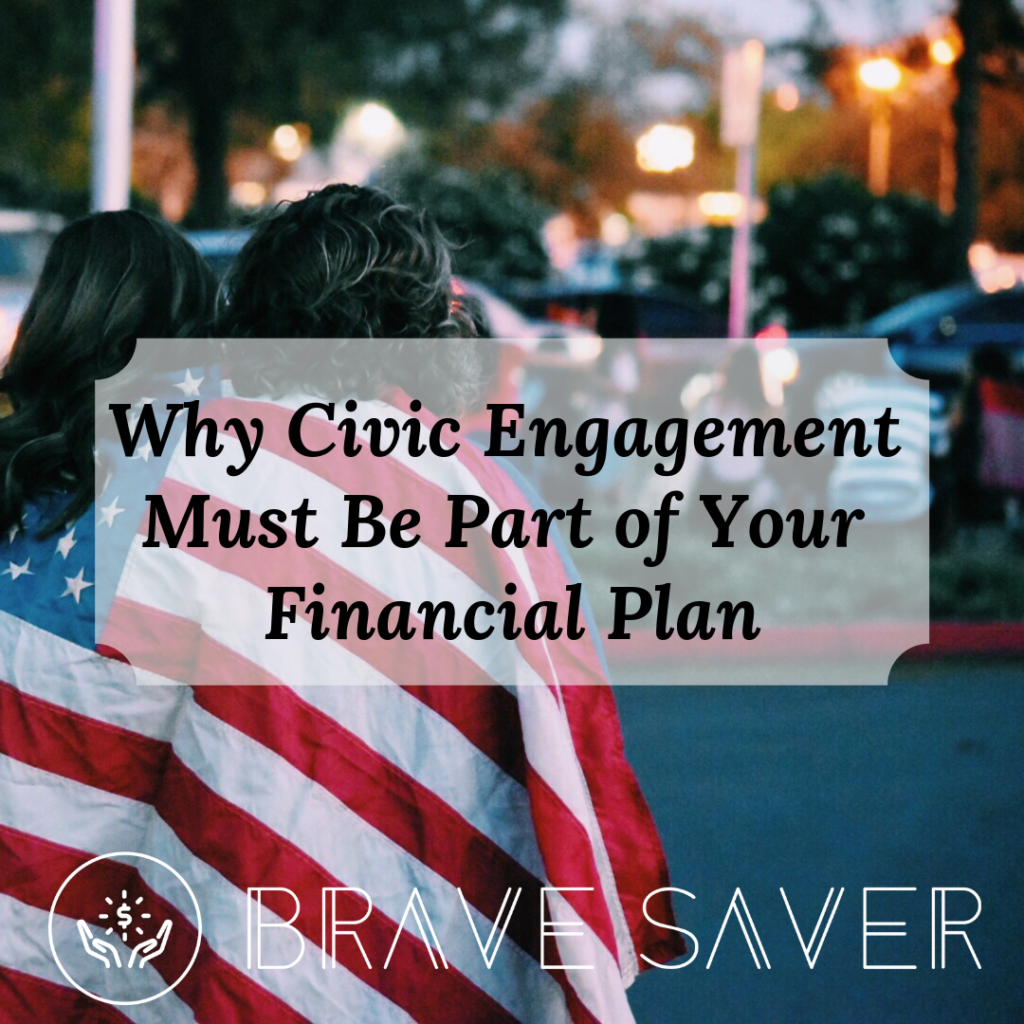
If you’re like me, the 35 days of the government shutdown were an exercise in futile fury. Or furious futility. Something like that — all I know is that each passing day of the government shutdown had me grinding my teeth in rage.
It’s infuriating that people who are hard workers serving their country were shamed over the state of their finances in a crisis that was most definitely not of their own making.
Instead of sympathy for suddenly having to work without a paycheck, these government workers were questioned by the personal finance community for not having enough savings or told to just get a loan. They were held up as proof that even the “stability” of a government job isn’t unfailing. That everyone still needs an emergency fund and a plan for when their pay hits the fan.
These are important points to make, sure. After all, personal responsibility plays a big part in personal finance, and in an ideal
But this is not an ideal world, and 40% of Americans couldn’t afford even a $400 emergency out-of-pocket. In this instance, it’s clearer than ever: even the most responsible money management can’t always compensate for bad policies and reckless politics.
What's in this post
The government shutdown proves it: voting matters
Civic engagement, including voting, should and must be central to every American’s financial plan.
The government shutdown reveals just one of many ways that public policy can rub up against Americans’ financial lives.
For the 800,000 federal workers furloughed during the 35-day shutdown, the impact was immediate, direct, and long-lasting. The shutdown stretched through two missed paydays for these workers. Federal contractors missed almost two months’ worth of work, money that for them is simply gone.
The shutdown’s effects didn’t stop with federal
This shutdown was a call to political action
Americans must see this blatant disregard for our nation’s employees, citizens, and residents as a call to civic engagement.
If you are not moved by your fellow Americans’ predicaments, consider your own. The policies in place in our country dictate whether your health insurance is affordable or breaks your budget. These policies determine who pays taxes, and how much, and how these contributions are used to provide value back to our communities.
Your financial security relies on the economic well-being of our nation as a whole — and a sound American economy relies on healthy, effective governance. From sticking to a budget to saving for retirement, or paying down student loans, all the actions you’re taking to build a secure financial future require a functional government to support this success.
And a functional government is not something that happens on accident. It happens because we elect leaders and lawmakers who care about making a difference and getting things done. It’s created through the hard work and dedication of every American, from my income taxes to your vote up to the highest office in the land.
We need to do everything in our power to send a message to lawmakers and politicians in every office, in every party: We will not stand for this. We will hold you accountable for what you do to our fellow Americans.
We can all strive to be more civically responsible citizens:
“A morally and civically responsible individual recognizes himself or herself as a member of a larger social fabric and therefore considers social problems to be at least partly his or her own; such an individual is willing to see the moral and civic dimensions of issues, to make and justify informed moral and civic judgments, and to take action when appropriate.”
Thomas Ehrlich, Civic Responsibility and Higher Education
5 ways to support personal finance-friendly policies and politicians
I have my views, you have yours, chances are they don’t all match up. Maybe I’ve even said something in this very post that you disagree with. That’s more than fine with me — whether we agree or not, we still must be as active and engaged in politics and civic life as they can.
We must all take the actions needed to protect the financial systems and stability of our nation. Our financial security, both individually and as a collective, depends on it.
Here are some great places to start.
1. Register to vote — then vote
If you’re not already registered to vote, do it now! Voting is the number one most important way to make a difference and have your voice heard.
You must also be registered to participate in civic duties such as voting in primaries or caucuses, signing onto ballot initiatives, or providing signatures to campaigning candidates. These are all excellent ways to get engaged in your local community and support worthy policies and candidates.
2. Stay informed on current events
Of course, my vote is only as good as the information I base it off of. So I try to stay informed and aware of what’s happening. I also look for policies that will affect my finances or those of other Americans — that’s a big passion of mine. By staying alert for news and events I care about, I’m up to date on what’s happening and can take action when appropriate and effective.
3. Subscribe to your local newspaper
People who closely follow local news are significantly more likely to be civically engaged. Specifically, they feel more connected to their community and are more likely to vote, found a Pew study.
Just as importantly, subscribing to a local newspaper will help to support the free press in your area. A well-funded newspaper will have more resources to report important local stories, as well as explain the impact of national stories at the local level. All this ensures a stronger system of transparency and checks and balances of those in power — on which democracy relies.
4. Talk to members of congress
You don’t have to wait until election day to make your voice heard. If you see something happening that you feel is wrong or threatening to Americans’ financial security, reach out and tell your reps in congress.
Calling and contacting your local, state, and national representatives is also a vital use of your civic power. It tells them what they must do to help you and the people you care about build a sound financial future — and how they can earn your vote.
5. Give your time and money
One of my big goals for this year is to make volunteer work a more regular part of my life. I’m also looking to donate more of my earnings to important causes and organizations.
Consider how you can use your time, money, and other resources to show up more for your community. It could be as simple as helping out more at your child’s school or volunteering for a local candidate’s campaign.
A focus on community engagement is a wise way to use your influence as one person to help steer towards healthy governance and sound financial policies. It also imparts a sense of connectedness and belonging in a time when too many people feel isolated and alone.
Working for a democracy that can support a healthy economy and encourage sound financial habits in its citizens and residents is an honorable aim. But like anything, this society won’t be built or improved without civic engagement from more Americans. So the next time you review your finances, don’t stop at tweaking your budget — take time to make your voice heard and make a difference.

Photo courtesy Courtney Hedger via Unsplash.




2 Comments
Financial Gaslighting: The Side Effect of Prescriptive Money Advice - Brave Saver
June 10, 2019 at 3:34 pm[…] finances and end up with vastly unequal outcomes. That’s largely a result of the systemic issues, problematic financial policies, prejudices, and power imbalances baked into our society that keep many poor and […]
How to Deal With Loneliness — and Finally Find Your Belonging - Brave Saver
May 27, 2020 at 3:53 am[…] Supporting those in my immediate circle, and using my influence to support those beyond as well. To vote and stay civically engaged. To work toward a healthier form of capitalism that puts people before profit. To speak and act to […]